HIỆPTHÔNG
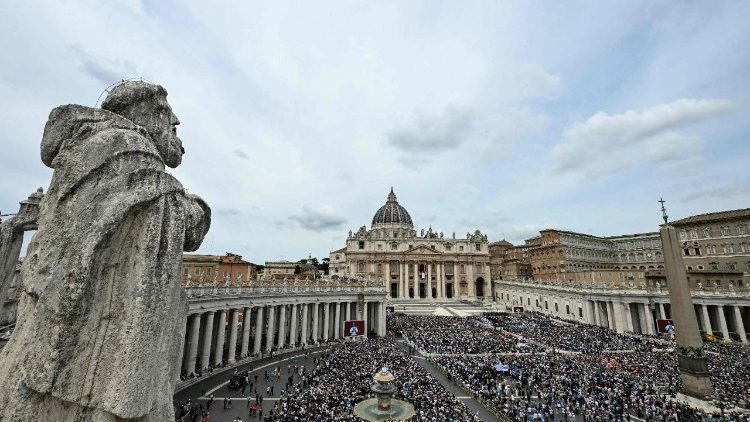 Vatican News -
Vatican News - Một số nghi thức đặc biệt trong Thánh lễ khai mạc sứ vụ Phêrô của Đức Thánh Cha Lêô XIV
Chúa nhật ngày 18/5, tại Quảng trường Thánh Phêrô, Thánh lễ khai mạc sứ vụ Phêrô của Đức Thánh Cha Lêô XIV được cử hành. Trong cử hành phục vụ long trọng này có một số nghi thức đặc biệt nhấn mạnh mối liên kết với Thánh Phêrô Tông Đồ và cuộc tử đạo của ngài, điều đã nuôi dưỡng Giáo hội tiên khởi tại Roma, cùng với ý nghĩa của những biểu tượng Giám mục “Phêrô” được trao cho Đức Thánh Cha: Dây Pallium và Nhẫn Ngư Phủ.
Dây Pallium
Dây Pallium là phẩm phục phụng vụ được làm từ lông cừu, gợi nhớ đến hình ảnh Vị Mục Tử Nhân Lành mang chiên lạc trên vai, và gợi nhớ đến ba lần Thánh Phêrô đáp lại lời mời gọi của Chúa Phục Sinh: “Hãy chăn dắt chiên của Thầy”. Symeon thành Thessalonica viết trong tác phẩm De sacris ordinationibus: “Dây Pallium đại diện Đấng Cứu Thế, Đấng đã mang lấy con chiên lạc là chúng ta trên vai, khi Nhập Thể đã mặc lấy bản tính nhân loại, để thánh hoá, hiến dâng chúng ta cho Chúa Cha qua cái chết trên Thánh giá và nâng chúng ta lên qua cuộc Phục Sinh”.
Dây Pallium là một dải vải nhỏ đặt trên vai, phía ngoài áo lễ, có hai đầu đen buông phía trước và sau. Trên đó thêu sáu thánh giá bằng lụa đen - mỗi đầu một thánh giá, và bốn thánh giá còn lại nằm trên phần vòng nằm ngang qua vai – và được trang trí bằng ba cây kim, biểu tượng ba chiếc đinh Thánh Giá Chúa Kitô.
Nhẫn Ngư Phủ
Nhẫn Ngư Phủ mang ý nghĩa của một chiếc nhẫn ấn tín, biểu tượng ấn tín đức tin được trao phó cho Thánh Phêrô để củng cố anh em. Gọi là Nhẫn “Ngư Phủ” vì Thánh Phêrô, tin vào lời Chúa Giêsu, thả lưới và đã kéo lên mẻ cá lạ kỳ.
Tại mộ Thánh Phêrô
Phụng vụ bắt đầu bên trong Đền thờ Thánh Phêrô. Đức tân Giáo Hoàng, cùng với các Thượng phụ của các Giáo hội Công giáo Đông phương, đi xuống nhà nguyện Mộ Thánh Phêrô để cầu nguyện và xông hương. Giây phút này nhấn mạnh sự gắn bó mật thiết giữa Giám mục Roma và Thánh Phêrô Tông đồ, người đã cùng với nhiều Kitô hữu khác làm chứng cho đức tin bằng máu đào tại nơi đây.
Sau đó, hai phó tế mang dây Pallium, Nhẫn Ngư Phủ và Sách Tin Mừng tiến về Bàn Thờ chính đặt tại quảng trường Thánh Phêrô.
Tại sảnh Đền thờ Thánh Phêrô
Đức Thánh Cha Lêô XIV tiến ra sảnh Đền thờ và nhập vào đoàn rước, trong lúc thánh ca Laudes Regiæ - cầu xin sự chuyển cầu của các Đức Giáo Hoàng, các vị tử đạo và các thánh của Giáo hội Roma - được cất lên.
Từ cửa chính Đền thờ, treo một tấm thảm lớn mô tả mẻ cá lạ thể hiện cuộc đối thoại giữa Chúa Giêsu và Thánh Phêrô, chủ đề trung tâm của Phụng vụ Lời Chúa. Tấm thảm là bản sao tác phẩm dệt Flemish dựa trên mẫu vẽ của Raphael, hiện lưu giữ tại Bảo tàng Vatican.
Gần bàn thờ, có đặt ảnh Đức Mẹ Chỉ bảo Đàng lành ở Genazzano.
Nghi thức được tiếp tục với phần làm phép và rảy nước thánh, vì là Chúa nhật Phục sinh. Sau đó hát kinh Vinh Danh, lời nguyện nhập lễ, cầu xin Thiên Chúa hoàn tất kế hoạch của Người: xây dựng Giáo hội trên nền đá Phêrô.
Phụng vụ Lời Chúa
Phụng vụ Lời Chúa bắt đầu với bài đọc một, công bố bằng tiếng Tây Ban Nha, trích từ sách Công vụ Tông đồ (Cv 4, 8-12), trong đó Thánh Phêrô tuyên xưng: “tảng đá bị thợ xây loại bỏ”. Đáp ca (Tv 117 [118]), công bố bằng tiếng Ý, lặp lại chủ đề: “Tảng đá thợ xây loại bỏ, lại trở nên đá tảng góc tường”.
Bài đọc hai, bằng tiếng Anh, trích từ thư thứ nhất của Thánh Phêrô (1 Pr 5, 1-5.10-11), làm nổi bật mối liên hệ giữa Thánh Phêrô, Giáo hội Roma và sứ vụ của người kế vị ngài.
Tin Mừng công bố bằng tiếng Latinh và Hy Lạp (Ga 21, 15-19), thuật lại việc Chúa Giêsu ba lần hỏi Phêrô: “Con có yêu Thầy không?”, và trao phó sứ mạng chăn dắt đoàn chiên. Đây là một trong những đoạn Kinh Thánh nền tảng cho vai trò đặc biệt của Phêrô trong nhóm Mười Hai.
Trao biểu tượng Giám mục phêrô
Sau Tin Mừng, ba Hồng y thuộc ba đẳng (phó tế, linh mục, giám mục) đại diện ba châu lục tiến đến gần Đức Thánh Cha. Vị thứ nhất trao Dây Pallium, vị thứ hai đọc lời nguyện cầu xin sự hiện diện và trợ giúp của Thiên Chúa trên Đức Thánh Cha. Vị thứ ba dâng lời khẩn cầu Chúa Kitô - “Mục Tử và Giám mục linh hồn chúng ta”, Đấng đã xây Giáo hội trên đá tảng Phêrô và được chính Phêrô tuyên xưng là “Con Thiên Chúa hằng sống” – xin trao cho Đức Tân Giáo Hoàng chiếc Nhẫn Ngư Phủ.
Nghi thức này kết thúc bằng lời nguyện cầu xin Chúa Thánh Thần ban cho Đức Thánh Cha sức mạnh và dịu dàng để gìn giữ các môn đệ Chúa Kitô trong sự hiệp nhất. Sau đó, Đức Thánh Cha ban phép lành với Sách Tin Mừng và cộng đoàn tung hô bằng tiếng Hy Lạp: “Ad multos annos!” (Nguyện cho ngài trường thọ)
Nghi thức tuyên hứa vâng phục
Tiếp theo là nghi thức vâng phục mang tính biểu tượng: 12 đại diện của toàn Dân Chúa đến từ khắp nơi trên thế giới tuyên hứa vâng phục Đức Thánh Cha. Thánh lễ tiếp tục với phần giảng lễ của ngài.
Sau đó là Kinh Tin Kính. Lời nguyện tín hữu gồm năm ý nguyện đọc bằng tiếng Bồ Đào Nha, Pháp, Ả Rập, Ba Lan và Trung Quốc. Các lời nguyện được dâng lên cầu cho Giáo hội hoàn vũ, Đức Thánh Cha trong sứ vụ bắt đầu của ngài, cho chính quyền dân sự, cho người đau khổ, và cho chính cộng đoàn hiện diện.
Phụng vụ Thánh Thể
Khi thánh ca dâng lễ “Tu es pastor ovium” (Ngài là Mục Tử của chiên) được cất lên, đoàn tín hữu cùng dâng bánh và rượu. Lời nguyện cầu xin cho nhờ sứ vụ truyền giáo của Giáo hội, hoa trái ơn cứu độ được lan tỏa khắp địa cầu.
Đức Thánh Cha đọc Kinh nguyện Thánh Thể I. Sau phần hiệp lễ, ngài cầu xin Thiên Chúa củng cố Giáo hội trong hiệp nhất và bác ái, và xin được cứu độ cùng với đoàn chiên được trao phó.
Nghi thức kết thúc
Trước khi kết thúc, Đức Thánh Cha có một bài huấn dụ ngắn. Sau khi hát Kinh Lạy Nữ Vương, ngài ban phép lành trọng thể, gợi hình ảnh Kinh Thánh về cây nho và vườn nho – biểu tượng của Giáo hội – và cầu xin Thiên Chúa gìn giữ và chăm sóc cây nho Người đã trồng, và xin cho ánh sáng cứu độ của Người chiếu soi trên tất cả mọi người.
Vatican News
 DIOCESAN NEWS -
DIOCESAN NEWS - WHY DO WE HAVE AN OBLIGATION TO ATTEND MASS?-I
16 April 2021
A Catechesis on the Third Commandment in Light of the Resurrection by Father Andrew Heaslip, Diocesan Director of Religious Education, Diocesan Coordinator of Digital Media, Director of the TV Mass for the Homebound.
In his press release issued on Wednesday of Holy Week restoring the Sunday and holy day Mass obligation, Bishop Conley mentioned that the Southern Nebraska Register would be publishing a catechetical series on this obligation.
In my last article on livestreaming the Mass, I attempted to share my personal, and to some extent, catechetical reflections on why livestreaming the Mass is a blessing, albeit an awkward one, and even more why it is necessarily more valuable to be physically and spiritually present at the Mass whenever it is available.
In this article I’d like to shift from those personal and partly catechetical reflections to a catechesis specifically on the third commandment in light of the Resurrection of Jesus because it is here where we will begin to understand the context of why there is a Sunday Mass obligation in the first place.
The goal of this catechesis, then, is to understand the meaning of the third commandment in the Old Covenant, in order to clearly see how its obligatory nature both continues and is fulfilled in the New Covenant by the practice of keeping holy the Lord’s Day, that is, the day on which the Lord Jesus rose from the dead.
The Third Commandment
In the book of Exodus, we learn that God revealed to the people of Israel on Mt. Sinai the commandment, “Remember the sabbath day, to keep it holy. Six days you shall labor, and do all your work; but the seventh day is a sabbath to the LORD your God; in it you shall not do any work… for in six days the LORD made heaven and earth, the sea, and all that is in them, and rested the seventh day; therefore the LORD blessed the sabbath day and hallowed it” (20:8-11).
We see in this text that the third commandment is deeply tied to the six days of creation. In fact, the word sabbath (sabbath) means the seventh day of the week and a day of rest; it is derived from the Hebrew word sabbath which means “to cease or to rest.” The idea here is that the Sabbath is the day on which God ceased his work of creation in order to bring rest and blessing to the seventh day. Hence, in the Old Covenant, the observance of the Sabbath entailed, among other things, remembrance of the Lord’s work of creation and rest from work and manual labor.
Moreover, like all of the Ten Commandments, the third commandment too was given in the context of God’s work of liberating or redeeming the people of Israel from slavery.
The Decalogue (Ten Commandments) begins with the words, “I am the LORD your God, who brought you out of the land of Egypt, out of the house of bondage” (Ex 20:2). Likewise, the expression of the third commandment in Deuteronomy adds, “You shall remember that you were a slave in the land of Egypt, and the LORD your God brought you out thence with a mighty hand and an outstretched arm; therefore the LORD your God commanded you to keep the sabbath day” (15:5).
We see here that the third commandment is deeply tied also to God’s work of redemption or liberation from slavery, that is, when He freed his people from Egypt and formed a covenant relationship with them on Mt. Sinai. Hence, in the Old Covenant the obligation of remembrance “You shall remember” includes God’s work not only of creation but also of redemption.
In the third commandment, then, we not only learn of the sacred importance of the Sabbath and the requirement or obligation to keep it holy through remembrance and rest but also discover the deepest reasons for this obligation: the Sabbath is directly connected to the blessing and holiness of the Lord’s work of creation and to the mighty power of His liberating work of redemption.
Sabbath to Sunday
The first question that ordinarily arises in view of the third commandment to keep holy the Sabbat (that is, the seventh day, Saturday) is why do Christians observe this commandment not on Saturday but on Sunday? Indeed, among the most traditional enumerations of the Commandments in the Church we find the third Commandment expressed, “Remember to keep holy the Lord’s Day.”
In apostolic times we hear this same reference; for example, in the book of Revelation, a book with profound liturgical undertones, St. John says, “I was in the Spirit on the Lord’s day...” (1:10). Likewise, one of John’s disciples, St. Ignatius of Antioch who died around 108 AD says, “those who lived according to the old order of things have come to a new hope, no longer keeping the sabbath, but the Lord’s Day.”
Also, St. Justin Martyr witnessed to this distinctive and ancient Christian practice around the year 155 AD when he wrote, “We all gather on the day of the sun, for it is the first day as opposed to the seventh day.” What is clear from these and other ancient accounts is that the movement from Sabbath to Sunday, the Lord’s day, was a distinctive characteristic of the early Christian communities from the beginning.
The Resurrection
This radical shift in religious practice should make us pause because in it there is a profound witness to the Resurrection of Jesus, which is the singular reason it occurred. In first century Judaism there was enormous importance attached to the Sabbath and its observance; we see references to this, for example, throughout first century Jewish texts and even in the Gospels themselves. Hence, “only an event of extraordinary impact could have led to the abandonment of the Sabbath and its replacement by the first day of the week” (Ratzinger, Jesus of Nazareth II).
The extraordinary historical event was the Resurrection of Jesus from the dead on the third day after his crucifixion, that is, at an unknown moment on the first day of the week, Sunday. Only something this remarkable could have brought about such a change in the deeply rooted religious culture surrounding the Sabbath. This change is one of the most convincing arguments from a historical perspective that something astonishing must have occurred at the beginnings of Christianity.
New Creation and Redemption
This event, the Resurrection, is the reason why Christians observe Sunday instead of the Sabbath. Nevertheless, the deepest meaning of the Sabbath and the commandment to keep it holy is in no way abandoned by Christians but rather fulfilled.
We saw that the Sabbath and the biblical expressions of the third commandment were directly tied to the first creation and to Israel’s redemption from Egypt. These events have been fulfilled in Jesus Christ. The Resurrection of Jesus from the dead on the first day of the week, in fact, begins the New Creation. Indeed, the creation of the visible world and of humanity find their meaning and summit in this new creation in Christ, or St. Paul says, “if any one is in Christ, he is a new creation; the old has passed away, behold, the new has come” (2 Cor 5:17).
Likewise, the paschal mystery of Jesus’ suffering, death, and Resurrection has brought Redemption to the human race. God’s work of liberating His people from slavery, Egypt, and pharaoh has come to fulfillment in His Son, Jesus who has redeemed us from sin, the world, and Satan.
Or, again, as St. Paul says, “In him we have redemption through his blood, the forgiveness of our trespasses, according to the riches of his grace which he lavished upon us” (Eph 1:7-8). Thus, the ancient meaning of the Sabbath has come to its culmination in the Resurrection of Christ on the first day of the week.
Remembrance and Rest
Likewise the obligations of the third commandment—to remember and to rest—continue in the New Covenant, but now as a living remembrance, especially in the eucharistic liturgy, of God’s supreme work of redemption and of making us a new creation in Christ, and now as a rest not only from work and servile labor but also as a rest which looks forward in hope to definitively “entering into God’s rest” in eternal life (cf. Heb 4:1-11).
This catechesis on the third commandment in light of the Resurrection hopefully helps us to see why there is a perpetual obligation of remembrance and rest on the Lord’s Day.
Likewise, I hope it helps us begin to understand why even when there is a legitimate dispensation from being present at the eucharistic liturgy or even when one is rightly excused from Mass because he or she is physically or morally prevented from attending, the obligations on Sunday of remembering of the Lord’s redeeming work and of rest that looks toward the definitive rest of eternal life can never be dispensed—the third commandment and its evangelical fulfillment come from God.
In the next catechesis on the Sunday and holy day Mass obligation I hope to continue this consideration on remembrance in view of the first precept of the Church: “You shall attend Mass on Sundays and holy days of obligation.”
This precept, which though at times can be dispensed as we all experienced during COVID-19, is a grave obligation that requires the faithful to participate in the Eucharistic liturgy because the liturgy is the supreme living remembrance which makes present Jesus’ redeeming work of the cross and Resurrection and, indeed, is carried out according to Jesus’ command, “Do this in remembrance of me” (Lk 22:19).
WHY DO WE HAVE AN OBLIGATION TO ATTEND MASS?-II
07 May 2021
A catechesis on the First Precept of the Church in light of Jesus’ institution of the Eucharist by Father Andrew Heaslip, Diocesan Director of Religious Education, Diocesan Coordinator of Digital Media, Director of the TV Mass for the Homebound.
In our last catechesis on keeping holy the Lord’s day and the Resurrection, we saw how the third commandment is deeply tied to creation and redemption, and how the Old Testament obligations of remembrance and rest on the Sabbath are fulfilled in Jesus Christ who brings about the new creation and the redemption of the human race through his cross and in his resurrection on the third day, Sunday.
In this catechesis I would like to draw from our previous reflections and focus on the first precept of the Church in view of Jesus’ institution of the Eucharist when he said, “Do this in remembrance of me” (Lk 22:19). The goal of this catechesis is to help us understand why there is a grave obligation to attend Mass on Sundays and Holy days and, even more, why this obligation is something we should freely want to fulfill whenever it is available.
The First Precept of the Church
The first precept of the Church is, “You shall attend Mass on Sundays and holy days of obligation” (CCC 2042). This precept requires the faithful to participate, that is, to be physically and consciously present at the Eucharistic liturgy when the Christian community gathers together for Sundays and Holy days of obligation. This precept is distinct from but deeply related to the third commandment, as well as other Jewish feasts of remembrance in the Old Covenant, both of which Jesus brought to fulfillment in the New Covenant.
Sunday Obligation
We saw in our last catechesis that one of the fundamental obligations of the third commandment is remembering God’s work of creation and redemption: “Remember the sabbath day... for in six days the LORD made heaven and earth... and rested the seventh day” (Ex 20:8-11) and “You shall remember that you were a slave in the land of Egypt, and the LORD your God brought you out thence with a mighty hand…” (Deut 15:5). We’ve already seen how this commandment continues and is fulfilled in the passion and, especially, the resurrection of Jesus on Sunday.
The point I would like to make here is: the precept to participate in the Eucharistic liturgy on Sunday, while distinct from the third commandment, realizes the command of remembrance in the fullest way possible because it is the supreme living remembrance of Jesus’ redeeming work on the cross and in the resurrection. The Mass makes his sacrifice for sins and his risen body actually present – living – and is carried out according to his words, “Do this in remembrance of me” (Lk 22:19). Hence, the part of the first precept of the Church that pertains to Mass on Sunday flows directly from the third commandment’s obligation to remember.
Holy Days of Obligation
What about other holy days of obligation? In addition to the weekly observance of the Sabbath, now fulfilled on the Lord’s day, Sunday, the people of Israel also celebrated many other feasts of remembrance. They occurred on fixed days and seasons of the year and included specific liturgical practices. For example, the great Jewish feast of Passover occurred on the 14th of the first month of the Jewish calendar and obliged the Israelites to celebrate it with specific ceremonies such as families coming together to partake of a Passover lamb. God and his chosen leader, Moses, instituted this feast and its specific liturgical practices, again, for the purpose of remembrance: “that all the days of your life you may remember the day when you came out of the land of Egypt” (Deut 16:3).
Similarly, the holy days of obligation in the New Covenant such as Christmas, Mary the Mother of God, the Ascension, All Saints Day, and the Immaculate Conception occur on fixed days or seasons and oblige God’s people to come together in the liturgy in order to celebrate God’s mighty works which have come to fulfillment in the mysteries of the Christian faith. Likewise, God’s appointed leaders, the successors of the apostles, instituted these holy days of obligation as a means of commemorating (remembering and celebrating) the great mysteries of faith and salvation from which all the family of God benefits. Hence, holy days of obligation are occasions of grace and remembrance; they have a certain connection with and precedent in the feasts of the Old Covenant, yet are ultimately rooted in the life and mysteries of Jesus and the authority of his Church, both of which are a fulfillment of the Old Covenant.
The first precept of the Church, then, has its obligatory character and can be dispensed because it is based in the pastoral authority of the pope and bishops who are the successors of Peter and the apostles who, in turn, were commanded by Jesus to celebrate the Eucharist, “...in remembrance of me.” This is, among other reasons, why there is a grave obligation to attend Mass on Sundays and holy days, and why it can be dispensed for serious reasons such as our recent global pandemic.
The Institution of the Eucharist
The first precept of the Church, moreover, has its deepest reason in the gift that Jesus gave on the night he was betrayed, when he instituted the Eucharist. It is in this gift and the prayerful words and actions surrounding this gift that we discover why we should long for and freely want to participate in the Eucharist. What is this gift? It is the gift of Jesus himself.
When He instituted the Eucharist before His passion, Jesus established the perpetual memorial of his suffering, death, and resurrection which has redeemed the world. This truth is contained in the very words that Jesus used at the last supper. When he took bread, he said, “This is my body which is given for you” (Lk 22:19) and when he took the wine, he said, “this is my blood of the covenant, which is poured out for many for the forgiveness of sins” (Mt 26:28).
An important point to realize here is that these actions and words of Jesus anticipated the sacrifice of his body and the pouring out of his blood on the cross. When he said to the apostles, “do this in remembrance of me,” what they were to remember was not simply the last supper but the crucifixion, its meaning, and the resurrection. The words “given for you” and “poured out for many” which the apostles heard with their ears at the last supper took on meaning only after Jesus’ ordeal of Roman crucifixion when he gave his body to be nailed to the cross unto death, and when the solider lanced his side causing his blood to pour out.
The command of remembrance, however, included not merely the recollection of the physical details of the suffering and death of Jesus but also, and especially, the meaning of them. The cross manifests Jesus’ love “to the end” (Jn 13:1); it is accomplished “for the forgiveness of sins,” “for our sins” (1 Cor 15:3); and it is the beginning of a “new covenant,” that is, a new and living relationship with God in his Son, Jesus. This gift of the Eucharist which Jesus instituted at the last supper and which the apostles were to do in remembrance of him took on its full meaning for them only after the crucifixion and resurrection; and it took them and the early disciples time to awaken to this full meaning.
Remembrance
The scriptural term remembrance, in fact, implies this type of awakening, that is, a realization of the reality of God and the work he has done (see for example, Num 10:10). We see this awakening to God’s work in the accounts of Jesus’ appearances to his disciples after the resurrection. For example, on the road to Emmaus, Jesus converses with two of his disciples who do not realize that it is him. It is only after he opens the scriptures to them about the meaning of the Messiah’s suffering and glory and, most of all, when he takes bread, blesses it, breaks it, and gives it—the same actions he performed at the last supper—that they finally realize or awaken to the reality that it is him. At that moment he vanished from their sight. Yet, he was helping them to realize that he is, and is going to be, present to them in a new way, that is, in the breaking of the bread which is the most ancient name for the Eucharistic liturgy. Indeed, after realizing it was the Lord, those two disciples told the apostles that, “he was made known to them in the breaking of the bread” (Lk 24:35).
It is with this full meaning of remembrance, which includes not only a recollection but also a realization of the living reality, that the apostles and early Church celebrated the Eucharist (see 1 Cor 11:23-27). So, it is with the Eucharistic liturgy in every age: when the Mass is celebrated it is done in remembrance of Christ whose passion and resurrection are not only recalled but also made present.
When we assemble together for the Mass it is truly a time when the Lord awakens us anew to his presence and his work of salvation. Indeed, nothing brings us closer to Jesus and to one another than the celebration of the Eucharist. It is there where we encounter his love to the end, it is there where we are renewed in the new and everlasting covenant relationship with God, and it is there where we can receive the crucified and now Risen Lord. These are the deepest reasons why there is a precept to attend Mass on Sundays and holy days of obligation and they are why we should long to realize this precept.
I hope that this two-part catechesis on the Sunday and holy day Mass obligation has been helpful not only for understanding but also for inspiration. It was written in anticipation of and preparation for May 23, the Solemnity of Pentecost, when this obligation will be restored in the Lincoln Diocese. May the Holy Spirit draw us together anew into Christ Jesus at the Eucharistic liturgy.
THÔNG BÁO
LỜI CHÚA HÀNG TUẦN
CÂU CHUYỆN HÀNG TUẦN
Songs of Comfort

8 Catholic Church Songs

Kinh Lạy Cha (tiếng Anh)

Kinh Kính Mừng (tiếng Anh)

Kinh Tin Kính (tiếng Anh)
ANRÊ DŨNG LẠC-Điện thoại (402) 423-2005 &(402) 937-5699
9210 1St Lincoln, NE 68526












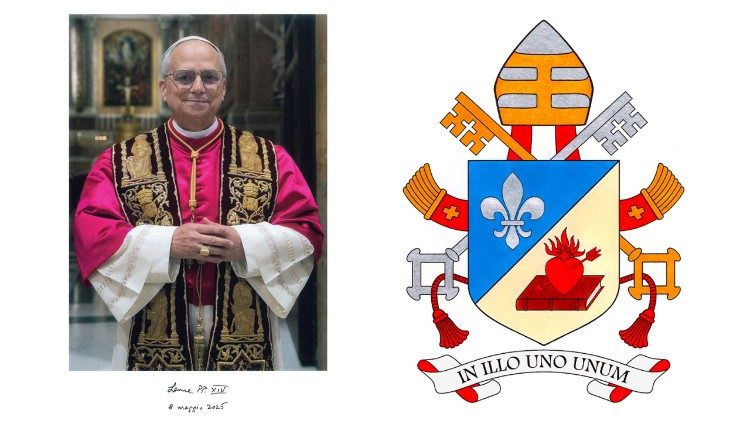
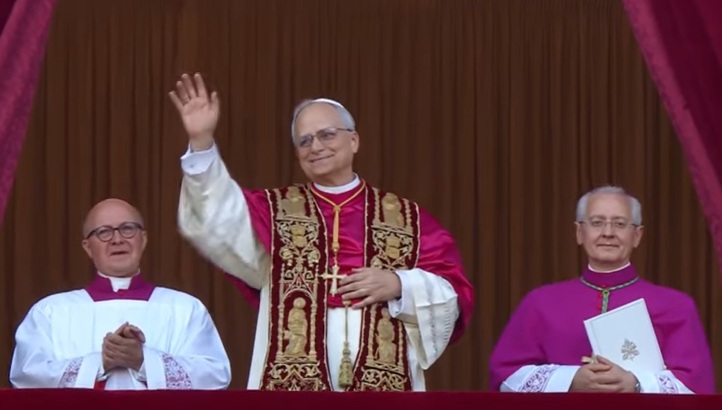
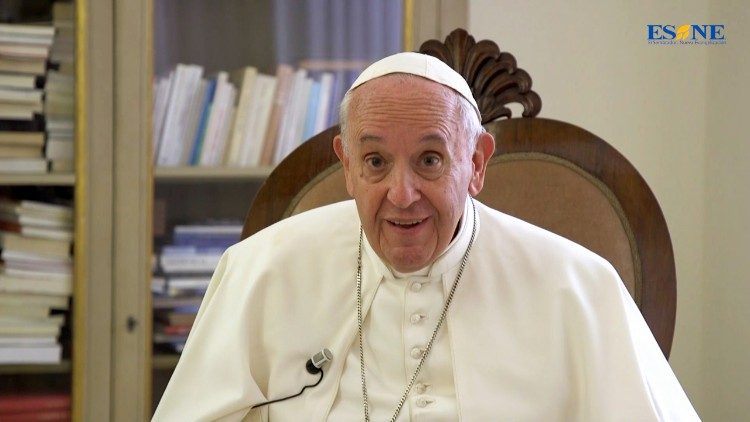
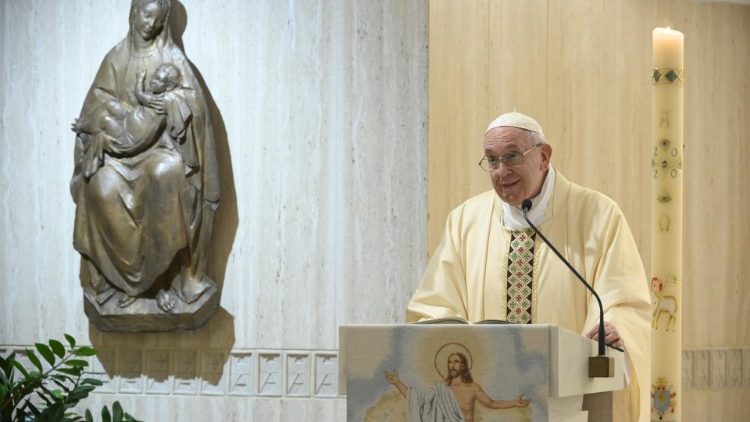
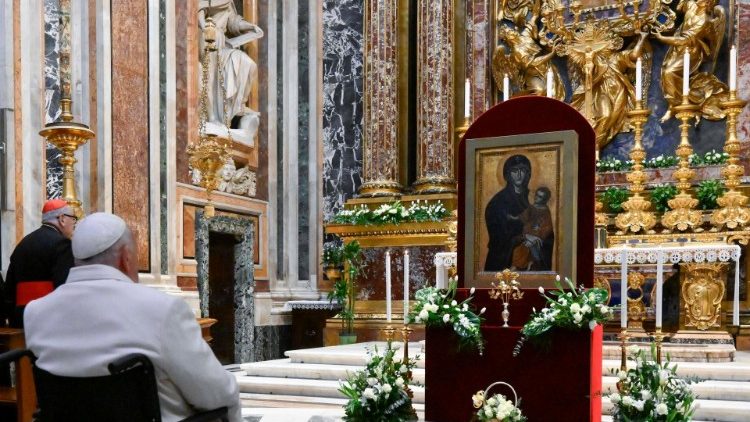
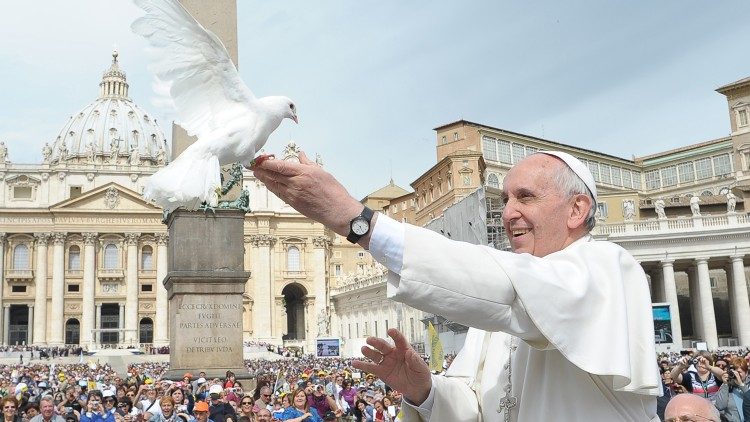
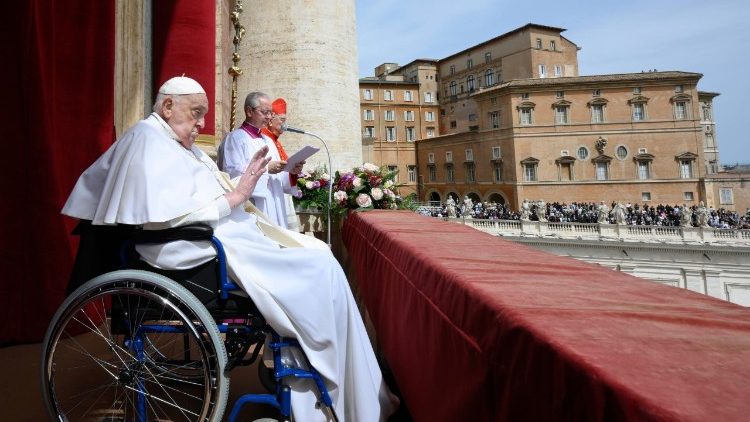








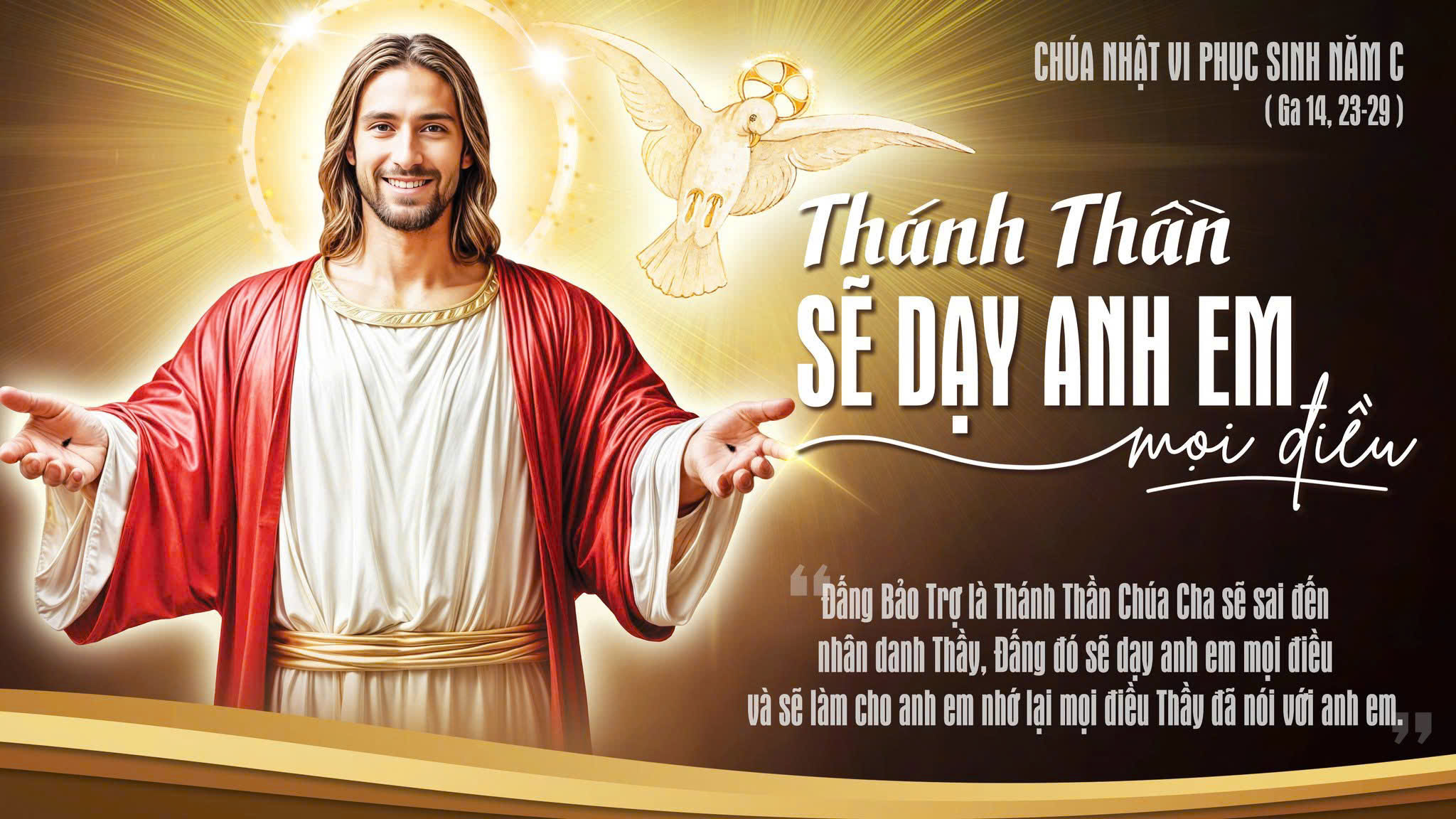


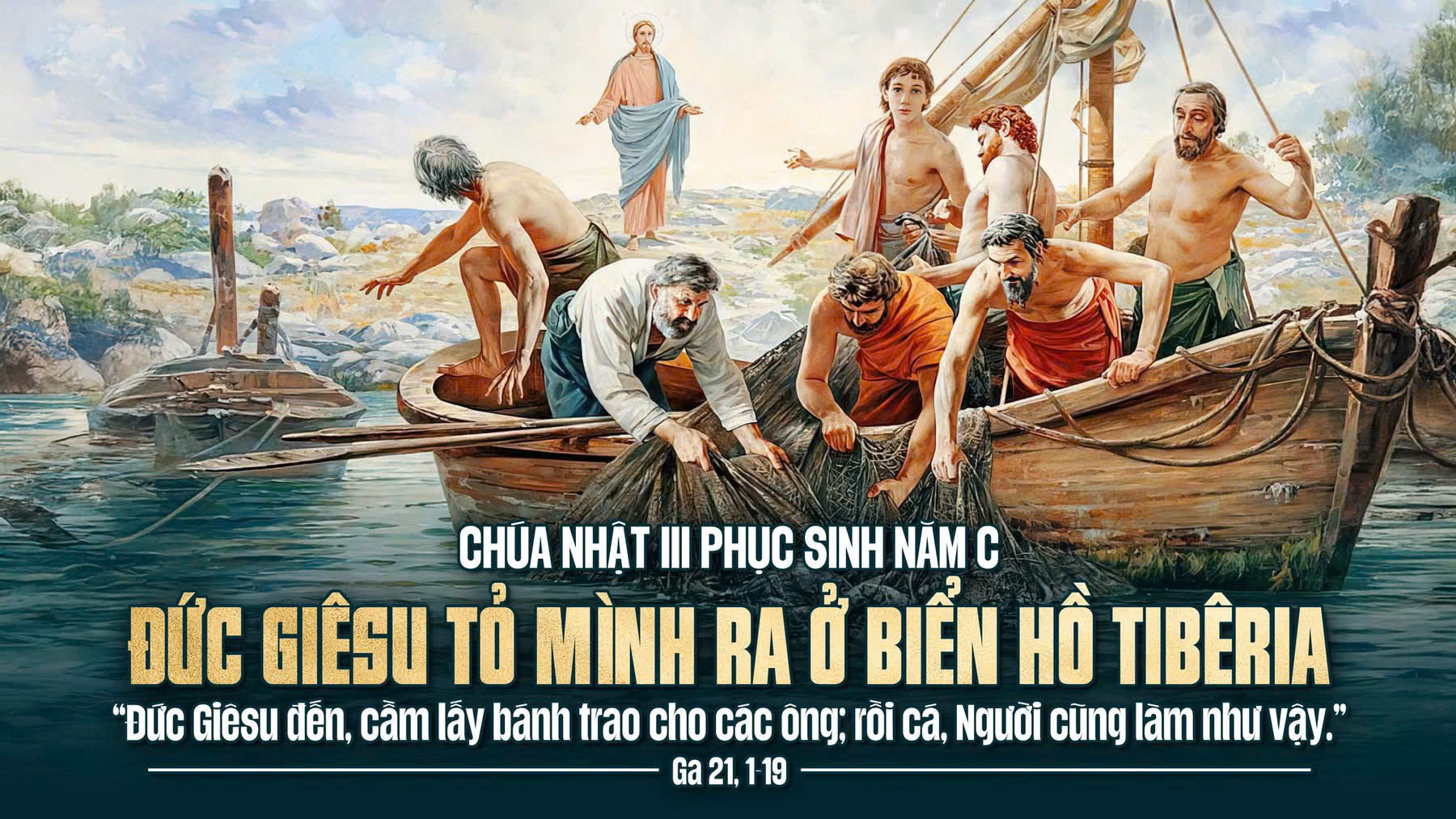
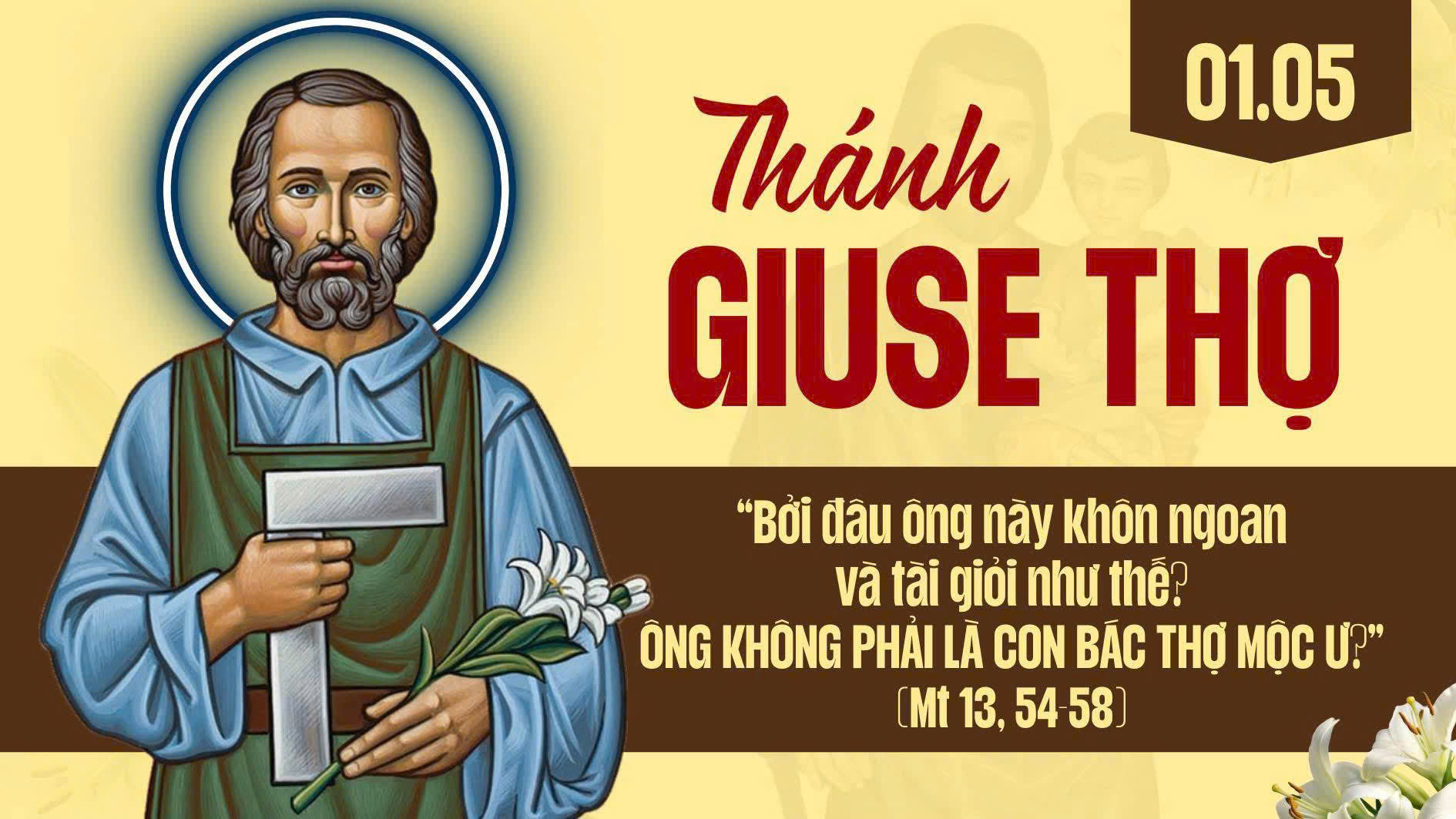
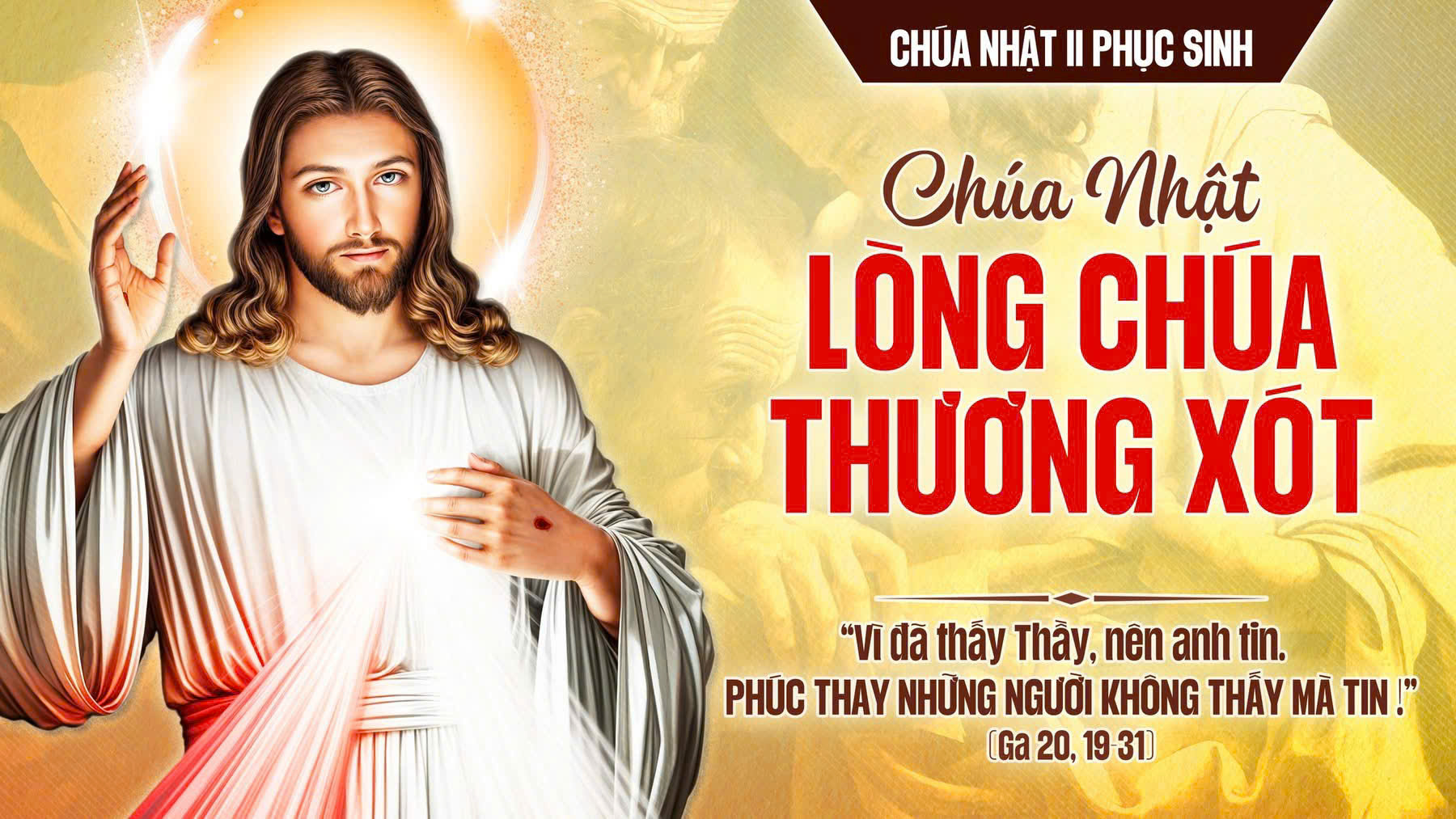
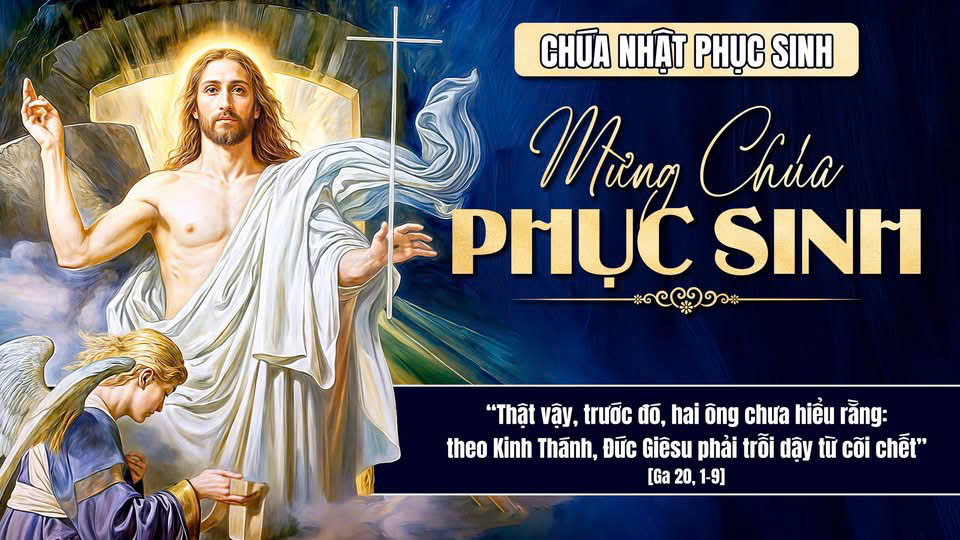
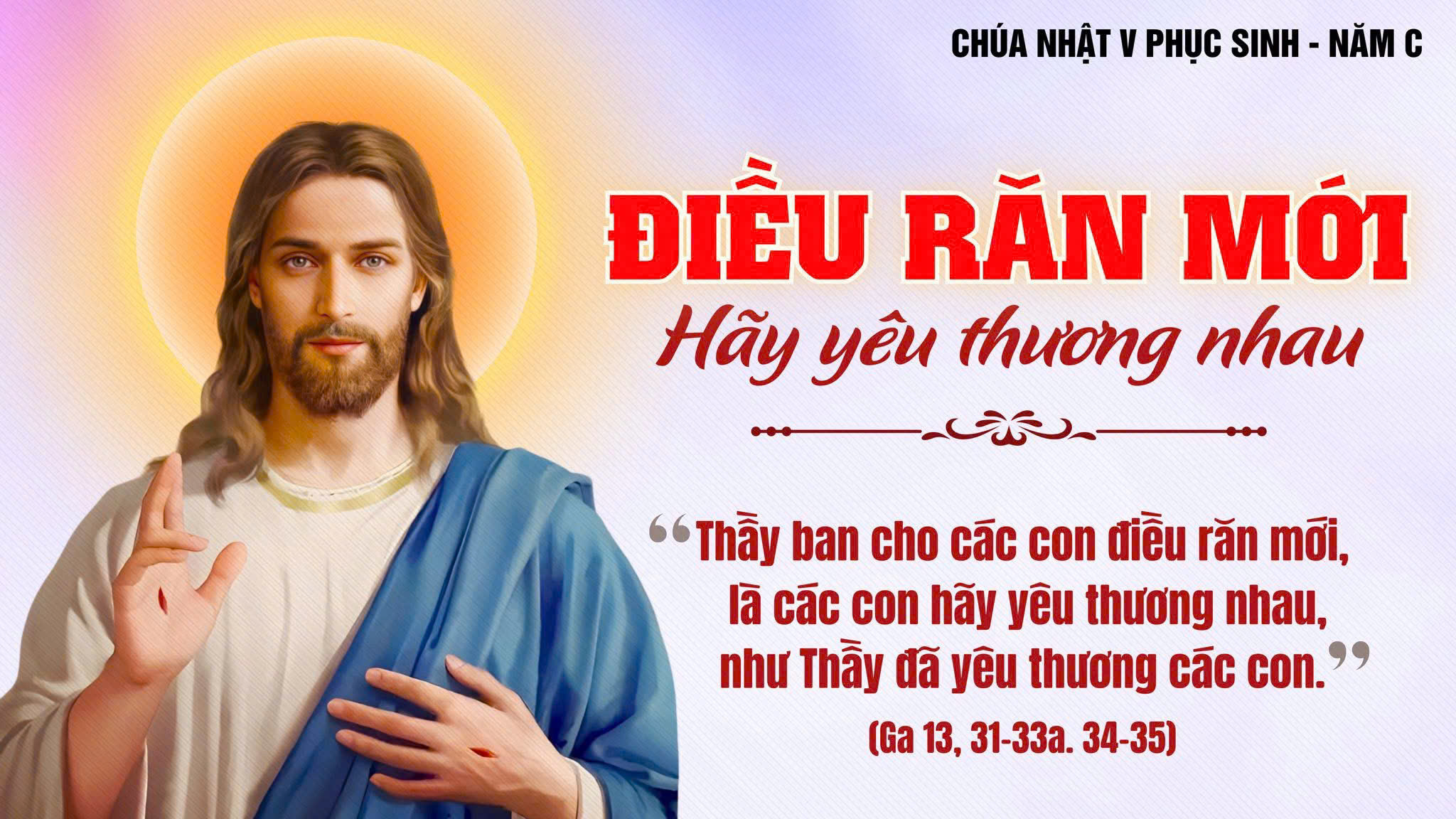


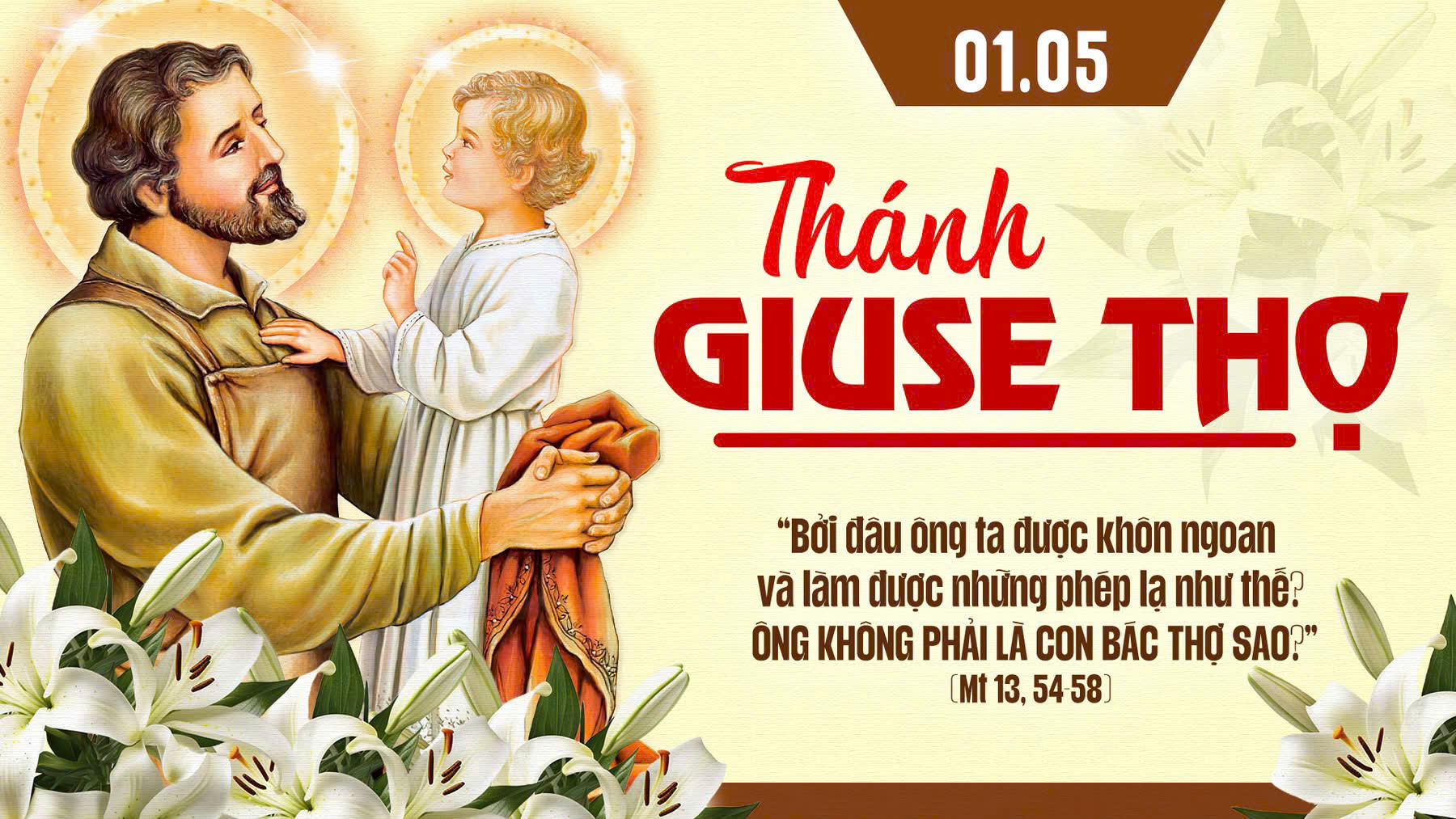


 ANRÊ DŨNG LẠC
ANRÊ DŨNG LẠC